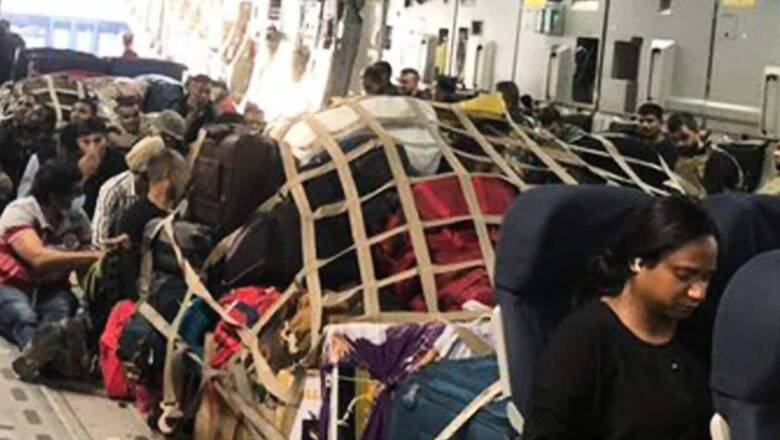As India Mulls Giving Asylum to Afghan Nationals, A Look at Its Refugee Policy And Citizenship Rules

views
With the Taliban taking over the Afghan capital and collapse of the Ashraf Ghani-led government, many residents are fleeing to neighbouring countries fearing the insurgent regime. India, which has been a traditional ally of Afghanistan, too has received multiple requests for asylum.
The Indian government on Tuesday announced that it will issue an emergency e-visa to Afghan nationals who want to come to the country in view of the prevailing situation in Afghanistan. All Afghans, irrespective of their religion, can apply for the ‘e-Emergency X-Misc Visa’ online and the applications will be processed in New Delhi.
However, in the recent weeks, only a few refugees have arrived from Afghanistan, mostly members of the government or those having prior visa given by India. On Sunday evening, Air India flight AI244 carrying 129 passengers, including some Afghan refugees from Kabul, landed in Delhi.
“As of July 2021, 15,467 Afghan refugees and asylum seekers are registered with UNHCR India,” Kiri Atri, assistant external relations officer of the UNHCR India, told News18. The number accounts for refugees coming in the country since over the last two decades. In a statement issued by UNHCR on Tuesday, the aid agency called countries for access to territory to allow civilians fleeing Afghanistan.
India has traditionally hosted refugees from Afghanistan since 1979. Legal experts say that though India is giving asylum to refugees, it is the goodwill of the government and it isn’t bound to provide refuge under international convention.
“India is not a signatory to any of the refugee conventions. But India has historically given space to refugees from Afghanistan, Tibet and Sri Lanka,” Anas Tanwir, Supreme Court lawyer and founder-director of Indian Civil Liberties Union, said.
India is not a signatory to the 1951 UN Convention or the 1967 Protocol, nor does India have a refugee policy or a refugee law of its own. It takes a dynamic call depending on the geopolitical situation and the country’s stand on the situation at that point of time.
Permanent Citizenship not an option
India has given citizenship to refugees from the neighbouring countries in the past. In most cases, it has given Long Term Visas (LTV) to the refugees, especially from Pakistan, Afghanistan and Bangladesh.
“I recently spoke to one immigrant from Afghanistan who has been living here. He wanted his family to come from Afghanistan to India. He has been living here for 10-15 years. Though he is earning here and has identification, he doesn’t have citizenship,” Tanwir said.
“If you have visa for certain number of years, you can apply for naturalisation. But it is totally up to the government’s discretion,” he adds.
Akbar Farhad, a refugee from Afghanistan in India since 2018, says that he gets his passport renewed every three years. “I don’t have Indian citizenship. I had a three-year visa which expired this year. The UNHCR has given me a refugee card and I have applied for a renewal. Then I will get a visa in the next two months,” Farhad said.
Refugees Selectively Chosen
On Sunday, as Taliban took control over Kabul, many tried fleeing the country, thronging the Kabul airport or trying to cross the border on foot. Many Afghan nationals had tried fleeing the country when the fighting escalated. News18 had earlier reported how many refugees trying to flee to India couldn’t be successful as they didn’t receive their visa on time.
“Two of my friends and relatives have submitted their passport for getting a visa. But even after 20 days, they haven’t got any response. The foreign embassies are closing down. Only few embassies have been left in Kabul,” Dawood Sharifi, an Afghan refugee in Delhi, had said.
A report in Hindustan Times suggested that a selected few would be granted refuge in India. India is likely to give refuge to political leaders or activists, human rights workers, media personnel, members of minorities and people who have worked with the Indian government.
Read all the Latest News, Breaking News and Assembly Elections Live Updates here.

















Comments
0 comment